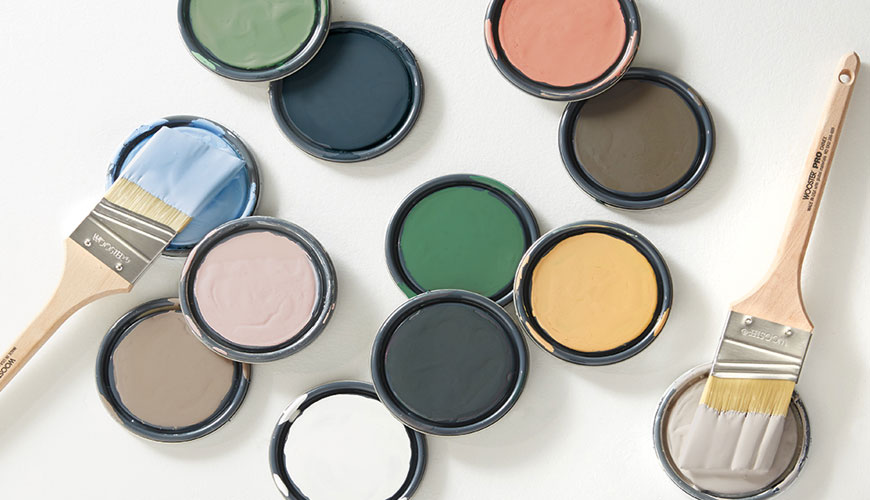

EUROLAB, with its state-of-the-art accredited laboratories and expert team, provides precise and fast testing services within the scope of ISO 3856-2 testing. The methods are applicable to coating materials having "soluble" antimony contents in the range of about 0,05% (m/m) to 5% (m/m). The AAS method should be used as the arbitration method in cases of dispute.

The principle of the flame atomic absorption spectrometric method consists in aspiration of the test solution into an acetylene/air flame. The principle of the Rhodamine B spectrophotometric method consists in the extraction of antimony after oxidation from a strong hydrochloric acid solution with di-isopropyl ether.
ISO 3856-2 is an International Standard that specifies two methods for determining the antimony content in paints and varnishes:
The purpose of this standard is to provide a reliable and accurate method for quantifying the soluble antimony content in paints and varnishes, as antimony is a toxic metal that can pose health risks if swallowed or inhaled.
The flame atomic absorption spectrometric method involves using a flame to vaporize the sample and then analyzing the resulting vapor using an atomic absorption spectrophotometer. This method provides a direct measurement of the amount of antimony present in the sample.
The Rhodamine B spectrophotometric method involves the use of Rhodamine B, a dye that reacts with antimony to form a colored complex. The intensity of the color is then measured using a spectrophotometer, which allows the antimony content in the sample to be determined.
Both methods require sample preparation by dissolving the paint or varnish in a suitable solvent. The standard specifies suitable solvents to be used for different types of paints and varnishes.
ISO 3856-2 also specifies the precision and accuracy of methods as well as the calibration of instruments used for analysis. The standard provides guidelines for validation of methods, including determination of limit of detection and limit of quantification.
By following the procedures outlined in ISO 3856-2, paint and varnish manufacturers, testing laboratories and regulatory agencies can ensure that the antimony content in paints and varnishes is measured accurately and reliably and that products containing excessive antimony are not released into the environment.
EUROLAB assists manufacturers with ISO 3856-2 test compliance. Our test experts, with their professional working mission and principles, provide you, our manufacturers and suppliers, the best service and controlled testing process in our laboratories. Thanks to these services, businesses receive more effective, high-performance and quality testing services and provide safe, fast and uninterrupted service to their customers.
To get an appointment, to get more detailed information or to request an evaluation, you can ask us to fill in our form and reach you.